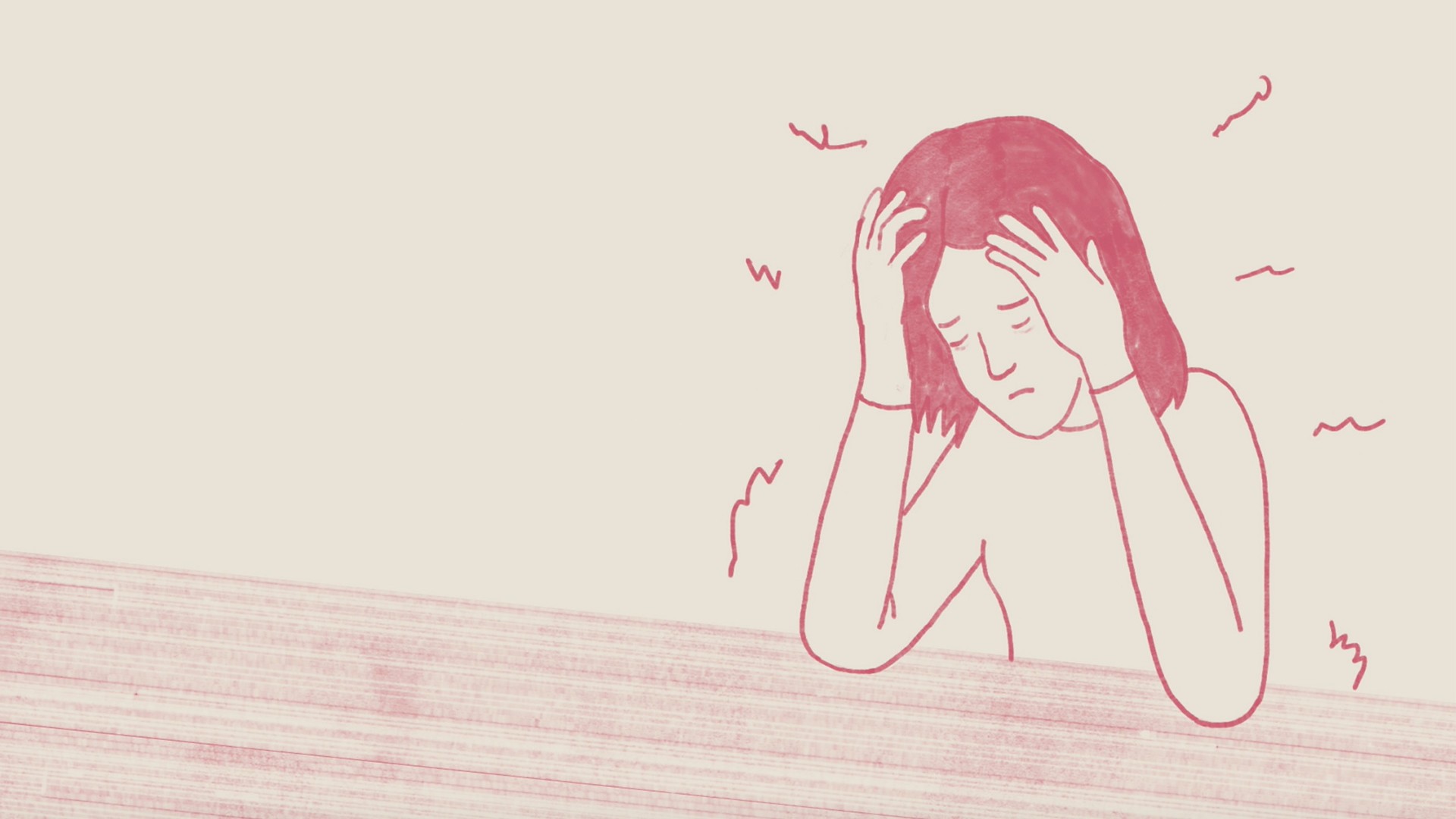Tana Teel / Stocksy
On Edge is a series about stress in 2017.No shade, but I’ve always been skeptical of people who call themselves "activists." If the media or your mom calls you one, that’s different. But if you’re all, “hey, I’m an activist,” you’ll get a generous side-eye from me rather than a back-pat.In this political climate, I’m starting to notice that the actual people whose life’s work is to genuinely attempt to give a voice to the voiceless are not concerned about being lauded as demigods. They’re busy trying to defend people’s violated rights. They’re painfully aware of the grave injustices that basic Twitter activists like me (#trying) are not. These are the people—who’ve been rising up in light of recent human rights battles—whose stress levels and mental health I’m concerned about. Who the hell is taking of care of them? Their cortisol levels cannot be normal.This thought first occurred to me when I watched the Kalief Browder documentary on Netflix last month. He was a black 16-year-old accused of stealing someone’s backpack, jailed for three years at Riker’s without ever being convicted of a crime, put in solitary for long stretches—as a minor—and then continuously fucked over by the Bronx Criminal Court system. Several years later, after the case was dismissed and he got out, he hung himself. His mother, Venida Browder, may she rest, found him in his bedroom.In those few years that he was out of jail and before Browder died, New York-based lawyer Paul Prestia took on his case against the city when others wouldn’t. It was a complicated one, to be fair. “The way I saw it, the injustice is at every level. The failings at every level of the justice system…I had this young kid in front me that was so affected by this entire ordeal, I couldn't say no to him,” he tells me. “It almost [didn’t] make sense that all of these things could have fallen this way for him.”Formerly a Brooklyn prosecutor, Prestia now has his own firm and has taken a special interest in civil rights cases. In the two years he spent trying to get Browder justice for what he went through—and what eventually led to his client’s psychiatric breakdowns—Prestia became extremely emotionally invested not just in the case, but in Browder’s family (“They became my other family at some point,” he says). He took Browder to basketball games, introduced him to his family, and in the months before Browder’s death, watched him spiral further into depression. “I can’t take it anymore,” Browder would say to him sometimes. Still, Prestia describes the morning he got the call from Venida that her son had killed himself as surreal. “You're never really prepared for death, I mean they certainly don't teach you that in law school,” he says.Prestia says he felt anger more than anything. “They killed him and that was it,” he tells me, about the city’s legal system. “I could say that with my words and I was able to say that through a lawsuit too—like articulate it, on behalf of his family.” Prestia says that after he allowed himself the space and time to grieve, he felt inspired—the case reinforced his commitment to using his law degree to unveil flaws in the system.
More from Tonic:
I’m going to keep it real. I get overwhelmed by my pansy-ass job and end up Kim Kardashian-ugly-crying in the shower some evenings, a glass of bourbon in hand. That’s my release. Prestia’s approach to combatting work stress is less melodramatic. “Yeah I don't know,” Prestia says after I tell him 80 times that his job is stressful. “I definitely try to stick to routine. I'm in the gym every morning and I coach soccer all fall and all spring with my girls.” Prestia tells me about his iced green tea habit after that, hoping to appease my curiosity. “It’s good for you—antioxidants,” he says.“Stress is really a highly subjective experience. And traumatic stress is really a complex blend of subjective factors and subjective interpretation,” says Judith Alpert, psychologist and professor of applied psychology at NYU Steinhardt. She tells me that events that seem completely overwhelming for some can be handled much easily by others. While everyone has their breaking point, Alpert tells me, some people are born (and raised) more equipped to have an activism-oriented job than others—depending on one’s past, one’s beliefs, practices of one’s cultures, and their level of resilience.Resilience is more of a requirement than a strength for Jan Rader, the first woman fire chief of Huntington, West Virginia. She’s serving the city with one of the highest rates of opioid-related deaths in the country. In 2014, Rader began personally delivering the overdose antidote, Narcan, to Huntington's fire houses and teaching first responders how to use it. As a former ER nurse, she was “ecstatic” when the health department gave her funding for Narcan. When a person has overdosed, she explains, they sometimes only have a couple of minutes before they’re dead. And firefighters are often first on the scene.“The human head is like a bowling ball and a lot of the patients that we deal with, their airway is not easy to open. So it's hard to provide rescue breathe for them. The Narcan waking them up or getting their respiratory rate to improve, is far better for them,” she says. Rader recalls the very first time she got a call about an overdose, as a shift commander. She had to use two doses of Narcan on the young man—he was that far gone.“Because his resistance was down, his body was not used to the dose that he took,” she says. “A lot of times when they relapse—they've been clean for a while—they're very prone to overdosing and even dying because they tend to use the same amount they did before they went into rehab.” After the second dose, the guy was completely alert. “It’s like a magic drug,” she says.Since her initiative began, Rader has been getting fewer calls about overdoses, so things seem to be looking up (there’s no official data yet, and the city remains at the forefront of the opioid crisis). She tells me it ebbs and flows, but on the Tuesday that I interview her, this woman had already brought two people back to life.“I took an oath to save life. I did not take an oath to judge people and decide who lives and who dies,” Rader says. She describes what it’s like to sit in an ER and have someone she knows come in to identify a body—their son or daughter, perhaps. “There are no boundaries here. I deal with as many wealthy people, intelligent people who overdose as poor people do.”I ask Rader what her evenings look like. On a day she’s held someone who’s already started turning blue from lack of oxygen and seen their eyes open again after she injects them with Narcan—then packs up her shit and goes home, what then? “I got two dogs—one is a rescue and one is a miniature golden doodle. They’re super fun,” she tells me. “I almost always go on a walk or a bike ride. I live right by a big park, so I spend it with family and friends sometimes, if they’re available. My nieces and nephews are older and into all kinds of cool things, so sometimes my sister stops here to hang out with me on her way home from work.”Rader’s relaxation techniques are wholesome as hell. She doesn’t even seem to be trying to “cope.” I reflect on what Alpert says about people who are just naturally better at handling stress. “Social support matters,” Alpert says. Friendships and social events are crucial for people who are having a hard time or who face stress on a regular basis. “Every weekend you have so see a friend. You must see or call somebody.” Alpert says some type of outlet is necessary, whether it be journaling (“make a worry list,” she says), exercise, or spirituality, which can be comforting for a lot of people.Rader says that she does take steps back from her work when she’s not on the clock. Prestia says he’s always working, even when he’s not working. But Alpert points out that for both of them, advocacy may ironically be the most potent form of stress relief. “When you’re horrified by something that’s going on, it helps people to take action,” she says. “Taking action, in terms of what’s going on politically, is a way of feeling better. You’re doing something meaningful and it’s so intensely engaging.” Fighting for something that seems unjust can be extremely therapeutic, she adds.Prestia asks me what the story’s about. I tell him. He says, “Look. I’m just a guy from New Jersey.” I’ll take it over “activist” any day.Read This Next: How to Be a Functional Workaholic
Advertisement
Advertisement
More from Tonic:

I’m going to keep it real. I get overwhelmed by my pansy-ass job and end up Kim Kardashian-ugly-crying in the shower some evenings, a glass of bourbon in hand. That’s my release. Prestia’s approach to combatting work stress is less melodramatic. “Yeah I don't know,” Prestia says after I tell him 80 times that his job is stressful. “I definitely try to stick to routine. I'm in the gym every morning and I coach soccer all fall and all spring with my girls.” Prestia tells me about his iced green tea habit after that, hoping to appease my curiosity. “It’s good for you—antioxidants,” he says.“Stress is really a highly subjective experience. And traumatic stress is really a complex blend of subjective factors and subjective interpretation,” says Judith Alpert, psychologist and professor of applied psychology at NYU Steinhardt. She tells me that events that seem completely overwhelming for some can be handled much easily by others. While everyone has their breaking point, Alpert tells me, some people are born (and raised) more equipped to have an activism-oriented job than others—depending on one’s past, one’s beliefs, practices of one’s cultures, and their level of resilience.
Advertisement
Advertisement
